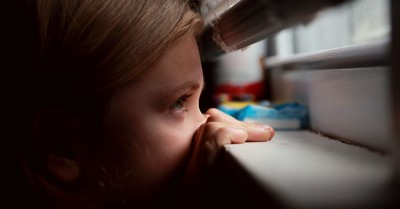In NSW, nominated supervisors and persons in day-to-day charge must complete a child protection course required by a Government protocol applying to the approved provider in accordance with section 162A of the Children (Education and Care Services) National Law. In-house training is not sufficient.
The following are the approved Child Protection training courses required by Government protocol:
- CHCPRT001 - Identify and respond to children and young people at risk
- CHCPRT002 - Support the rights and safety of children and young people
- NSW Department of Education’s Child Protection Awareness Training
Previously Approved Courses
The list of previously approved courses below has been superseded. However, if these courses have previously been undertaken and completed by a Nominated Supervisor and persons in day to day charge, they will be accepted as the appropriate qualifications required to fulfil 162A.
- CHCCHILD401A - Identify and respond to children and young people at risk.
- CHCCHILD401B - Identify and respond to children and young people at risk.
- CHCCHILD404A- Support the rights and safety of children and young people.
- CHCCHILD404B- Support the rights and safety of children and young people.
- CHCCHILD1B or CHCCHILD1 C - Identify and respond to children and young people at risk of harm - delivered by a TAFE or other RTO
- CHCCHILD2 support the rights and safety of children within the duty of care requirements (TAFE NSW only)
- CHCCHILD2A support the rights and safety of children within the duty of care requirements- delivered by a TAFE or other RTO
- Identify and respond to children and young people at risk (3294G identify and respond to the risk of harm)- delivered by TAFE NSW only
- Identify and respond to children and young people at risk (combination of 3290K legislative and ethical requirements and 3292P child protection) delivered by TAFE NSW only
Ongoing Requirement To Maintain Awareness Of Child Protection Responsibilities
Services have ongoing responsibilities to ensure that the nominated supervisor and staff members at the service who work with children maintain up-to-date knowledge of child protection law (Reg 84).
While s162A does not mandate an expiry period on child protection training courses or issued certificates, Reg 84 specifies that the approved provider must ensure that nominated supervisors and staff members (including educators) working with children are advised of the existence and application of the current child protection law; and any obligations that they may have under that law.
To ensure child protection awareness is current and up-to-date, approved providers should consider:
- assessing the currency of child protection awareness of every staff member working with children at the start of their employment and during staff appraisals;
- staff undertaking child protection ‘refresher’ training every 12 – 24 months, and whenever significant changes are made to the child protection law or
- reporting requirements;
- regularly generating staff discussions and revising practices within the service.
Refresher Training
The term “refresher course” is an industry term referring to training designed to assist the participant in demonstrating up-to-date knowledge of a previously studied topic. A refresher training course does not necessarily have a course code or provide any formal accreditation, such as a certificate.
Refresher training is relevant to demonstrate compliance with Reg 84 and Quality Area 2.
Compliance with s162A requires completion of one of these approved courses delivered by an accredited course provider. Section 162A does not require “refresher training”.
Summary Of Child Protection Training and Awareness Requirements
The Approved Provider should:
- (1) Ensure that every nominated supervisor and every person in day-to-day charge has:
successfully completed approved child protection training (S162A);
has evidence of the successful completion of approved child protection training;
is aware of current child protection law (R84);
understands how to apply child protection law within their service (R84);
is aware of their obligations under that Law, such as the responsibilities of a mandatory reporter. (R84) - (2) Ensure that all staff members who work with children have been advised of:
the existence and application of the current child protection law (R84);
any obligations that they may have under the law (R84); - (3) Ensure that the service has:
policies and procedures in place relating to the provision a child-safe environment (R168(2)(h);
in the case of a family daycare service, policies and procedures in place to provide information, assistance and training to educators (R169(2)(g)).
National Quality Standard
Compliance with s162A and Reg 84, is essential for regulatory compliance and meeting the National Quality Standard.
Child protection requires management, educators and staff to be aware of their roles and responsibilities to identify and respond to every child at risk of abuse or neglect.
Considerations For Service Providers
- Does the service’s Quality Improvement Plan (QIP) provide a focal point for high-quality child protection practice within the service?
- Does the service have a child protection policy and ensure all policies and procedures are active and regularly reviewed?
- Do all staff members feel confident to follow the child protection policy and procedure?
- Is child protection a standard agenda item at staff meetings?
- Do educators participate in child protection learning activities, discussions, and webinars?
- Is child protection information readily available to staff members and families?
- Are families aware that staff members are mandatory reporters of suspected child abuse and neglect to government authorities?
- Does the service have a Code of Conduct, and ensure all educators practice appropriate interactions with children (R155)?
For more information: Child Protection Training Requirements - Government Protocol
